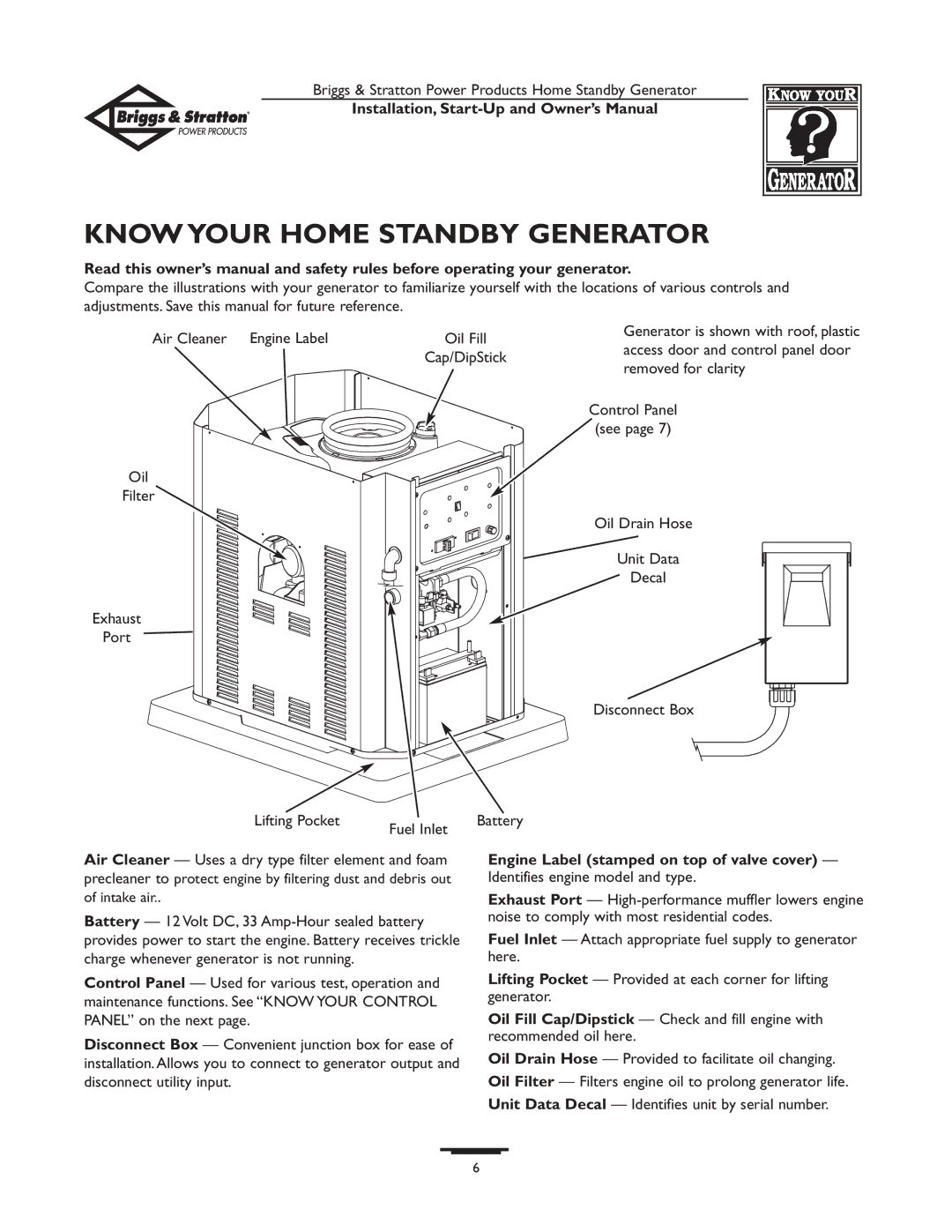
Briggs & Stratton Power Products Home Standby Generator
Installation,
KNOW YOUR HOME STANDBY GENERATOR
Read this owner’s manual and safety rules before operating your generator.
Compare the illustrations with your generator to familiarize yourself with the locations of various controls and adjustments. Save this manual for future reference.
Air Cleaner | Engine Label | Oil Fill |
|
| Cap/DipStick |
Oil
Filter
Exhaust
Port
Lifting Pocket | Fuel Inlet | Battery |
|
|
Generator is shown with roof, plastic access door and control panel door removed for clarity
Control Panel
(see page 7)
Oil Drain Hose
Unit Data
Decal
Disconnect Box
Air Cleaner — Uses a dry type filter element and foam
precleaner to protect engine by filtering dust and debris out of intake air..
Battery — 12 Volt DC, 33
Control Panel — Used for various test, operation and maintenance functions. See “KNOW YOUR CONTROL PANEL” on the next page.
Disconnect Box — Convenient junction box for ease of installation. Allows you to connect to generator output and disconnect utility input.
Engine Label (stamped on top of valve cover) — Identifies engine model and type.
Exhaust Port —
Fuel Inlet — Attach appropriate fuel supply to generator here.
Lifting Pocket — Provided at each corner for lifting generator.
Oil Fill Cap/Dipstick — Check and fill engine with recommended oil here.
Oil Drain Hose — Provided to facilitate oil changing.
Oil Filter — Filters engine oil to prolong generator life.
Unit Data Decal — Identifies unit by serial number.
6
